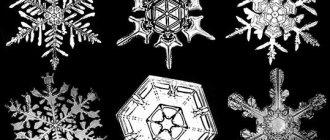In everyday life, anyone can describe a person’s character; they don’t bother too much with this. Popular characteristics include “angelic” and “heavy,” but there seems to be no need to know about the finer details. There is an opinion that knowledge of psychological subtleties is of no use in everyday life. This is true for many, but not for those who have to work with people, negotiate, manage, hire or appoint to positions. Such people know the value of every squiggle in the moral portrait of their ward. This saves them time, effort, and allows them to do their work more efficiently and effectively.
The ability to quickly understand the character of an opponent gives a negotiator a lot of advantages. The more accurate the data, the less likely it is to make mistakes and do yourself a disservice.
It is possible to rely on instinct in this difficult matter, but it is not recommended for two reasons:
- Not everyone has a flair, not everyone can develop it. And even those who can know better what to strive for.
- Intuition is rarely absolute, more often it is general, that is, it can tell you when it is better not to mess with your opponent, and when you have a long, grueling day ahead of you. But you'll never know why.
Acting courses from the Benefis theater studio will help you learn to better understand the subtleties of a person’s character and develop your communication skills.
What is human character
Translated from Greek, character is translated as “seal”, “minting”, that is, on the one hand, it is a distinctive sign, and on the other, something stable and inherent in a specific subject or object.
In psychology, character
is a set of persistent individual personality characteristics that determines the type of behavior and the form of relationships with other people.
Character traits, as personality traits, are as follows:
:
- its components have a long-term effect, stability, and do not change quickly and easily;
- character has practical significance; it determines a person’s actions in all spheres of life.
A person can show heroism, cowardice, be anxious, aggressive or soft, weak-willed. If such manifestations occur frequently and are clearly expressed externally, then they will say about the person: “He has such a character.”
When a kind-hearted and gentle person flares up under certain conditions and shows aggression, then those around him will not call it character; rather, they will attribute it to specific circumstances.
Knowledge of a person’s character allows one to predict his behavior and actions in various situations, as well as correct them if necessary. We always know in advance who we can turn to for help, with whom we are not afraid to enter into risky ventures: “He can’t do anything differently, that’s his character.”
What is an adjective and what function does it serve?
The most pleasant and picturesque part of speech is the adjective, because with its help you can describe your feelings, attitude towards a person, the personality of others and compliments. Russian parts of speech (adjective, noun, verb and others) help to display the environment using words, and even with your eyes closed you can understand what is being said and orient yourself in space. Adjectives add precision, specificity, and imagery to the main ideas in a sentence. This part of speech denotes the attribute of an object. Such words most often act as a definition or a nominal part of the predicate in a sentence. If we refer to the adjective, the author describes the person’s appearance, as well as his psychological portrait, for example, his habits, way of life, and so on. Adjectives that characterize a person add accuracy, consistency and vividness to the description of his personality. The main function of an adjective is to designate a characteristic. Adjectives can be qualitative, relative and possessive. The question of how to describe a person can only be resolved with the help of adjectives.
Character Traits: General Information
Not every feature of a person can be attributed to his stable, permanent character trait. We have already said that a good-natured person can lose his temper, and, for example, an optimist can fall into melancholy. But we will not describe the first as an aggressor, and the second as a whiner.
In psychology, there are three leading groups of character traits, which together constitute it.
1 group of traits - attitude towards oneself
This group includes both positive and negative characteristics that show the individual’s attitude towards himself and his self-awareness.
Character traits with a plus sign
- inner dignity, honor, pride, self-criticism, appropriate modesty, adequate self-esteem.
Traits with a minus sign
- vanity, inflated self-esteem and self-esteem, pride (not to be confused with pride), touchiness, shyness (not to be confused with modesty).
Group 2 – attitude towards others
Characteristics that show the basis of a person’s relationships with other people - in the family, in a team, in a circle of friends.
Character traits with a plus sign
- responsiveness, respect, communication, sensitivity, willingness to help, ability to work in a team, decency.
Traits with a minus sign
- callousness, contempt for others, snobbery, rudeness, neglect, isolation, callousness, individualism.
3rd group of traits – attitude to activity
This group combines character traits related to their business, profession, and work in general.
Character traits with a plus sign
- hard work, activity, responsibility, creativity, a penchant for creativity, initiative.
Traits with a minus sign
- laziness, procrastination, irresponsible attitude to business, lack of initiative, passivity.
Based on a sample of these characteristics, you can create a portrait of a person.
Key points
The portrait includes a detailed examination of several aspects.
Temperament
Scientifically, 4 groups of people have been identified: phlegmatic, sanguine, choleric and melancholic. Temperaments are practically never found in their perfect form. Typically, a personality combines two different types. Depending on our internal state and emotionality, we manifest ourselves differently in life processes, react to the same situations, participate in conversations and start relationships. It is worth considering that the type of temperament is an innate parameter that does not change during existence. Do not expect that an indifferent phlegmatic person will suddenly become an organizational and explosive choleric person, and even if changes appear to you, most likely this is a temporary impulse and an erroneous judgment. Only a slight adjustment to the original data has been proven.
- Choleric people are the most active, hardy, bright and strive towards their goal.
- Melancholic people, on the contrary, are vulnerable, calm, and indecisive.
- Phlegmatic people communicate easily, they are reliable friends and co-workers who adequately assess any situation.
- Sanguine people are sociable, sincere, sympathetic and friendly.
Character
This is a set of stable behavioral traits that can transform and change over time depending on the environment, upbringing and life shocks. Although it is believed that the initial list of parameters is laid down at the genetic level, it is significantly supplemented by moral principles acquired over time.
Thus, children of the same parents, when brought up in families with different foundations, can turn out to be completely opposite personalities. The character of any person can be simultaneously described from two sides. For example, you can be kind, sincere and open, but at the same time jealous, touchy or lazy.
Capabilities
Literary sources divide them into three groups: spiritual, physical and social. Naturally, the physiological ones are instilled first - health, skills, strength, endurance. Spiritual ones depend more on upbringing and habitat. This is education, cultural inclinations, morals. Social ones are also acquired and formed in the process of life - these are openness, sociability, the ability to establish contacts, responsibility, high punctuality and strong discipline.
Focus
The foundation of this parameter is motivation. It represents a person’s daily activities and explains his actions. Some people want to satisfy their physiological needs, they want to eat delicious food, live in a cozy apartment or drive a modern car. For others, it doesn’t matter, and their priorities include communication, new information, making acquaintances, realizing their creative potential, and playing sports.
Emotionality
This parameter is expressed in the ability and way to express one’s feelings and experiences to others, to show one’s mood or, conversely, to hide it. Depending on the degree of emotionality present in you, you form a different reaction to the surrounding reality. This is what makes it possible to understand your neighbor, regardless of his language, culture, religion or level of intelligence. Everyone will be able to recognize anger, happiness, and fear in their interlocutor.
Psychologist Daria Milai
Make an appointment
Intelligence
A person is able to develop himself through the perception of new information, practical exercises, and the accumulation of experience, but the basic level of intellectual development with which a child is born plays a key role. It helps to adapt to new conditions, evaluate an unfamiliar situation and the behavior of third parties, make assessments and conclusions. This is the ability to think rationally and act correctly regarding the current situation. As a rule, talent or aptitude for any field of knowledge is discovered already in childhood; the main thing is not to miss this moment and begin to develop it.
Communication skills
Any individual, regardless of the number of years lived, financial and social status, level of intellectual development, should be able to form communication with others. However, the ability to speak is not equally developed among individuals. For example, a psychoportrait of a comedian or manager should reveal a high level of communication skills, in contrast to a gardener, combine operator or fisherman. It is worth considering that any professional activity is inseparably linked with communication, and in the absence of this parameter, achieving success and getting a promotion will be almost impossible.
Self-esteem
This is the level of self-confidence. Conventionally, it is divided into overestimated, underestimated and objective. With the first, there is an overestimation of one’s capabilities, a deliberate overestimation of achievements, or even attribution of other people’s heights to oneself. In the second, on the contrary, there is excessive self-criticism and lack of confidence in one’s abilities, while normal speaks about an adequate assessment of oneself and one’s actions. If you have identified low self-esteem, it is better to seek help from a qualified specialist.
Face-to-face consultation
What are the features and advantages of face-to-face consultation?
Find out more
Skype consultation
What are the features and benefits of Skype consultations?
Find out more
Strong-willed qualities
Will is a kind of internal core of personality, strength of character and the main parameter that allows you to achieve success. Strong-willed qualities are purposefulness, firm determination and complete independence, lack of fear of taking risks, and the ability to take responsibility. Even with positive living conditions, high intelligence, and talent, without will an individual will not achieve effective results. A strong-willed person does not have the harmful laziness, lack of initiative, lack of discipline, or weak character.
Self-control
Controlling yourself, your emotions, words and actions, being well-mannered - these are the qualities that will help you establish good communication with others, establish business or love relationships. Those who cannot sufficiently control themselves and keep their mouth shut will not have worthy interlocutors. Many companies pay attention to this skill when hiring employees. Recruiters deliberately create various stressful situations and ask uncomfortable questions to understand how you will behave.
Teamwork ability
Not all individuals have the ability to work in a team. However, it is a valuable skill that allows you to adapt and listen to other people. It needs to be developed from childhood.
Motivation
One of the most powerful qualities of a person. Even a lazy and indecisive individual, if necessary and willing to make a purchase, get a position or win the favor of an interlocutor, can take unexpected and rash actions, accelerating the process of achieving a goal. For different people, motivation can be hidden, superficial or strong, reaching the point of mania and passion.
Social attitudes
One of the consequences of communication is the transfer of information - the exchange of news, experience, information. Data received from outside influences the behavior, mood and actions of people, pushing them to certain actions.
Features of human character formation
For a long time, philosophers believed that character is an innate human trait. That is, he is born with a certain set of qualities that do not change during the formation process. Today this view is not supported. It has been proven that character is formed throughout life and depends on upbringing, environment, entry into a certain social group, professional activity, etc.
For the first time, the idea of a significant influence on the character of external factors was expressed by the scientist D. Locke, who argued that psychophysical properties and upbringing influence the formation of character equally.
Modern science (last century) supports this hypothesis.
According to researchers, personality formation is influenced by
:
- labor education;
- personal example;
- physical education;
- self-development;
- moral and ethical education;
- correct formation of habits.
Regardless of age, the process of character formation is exposed to the influence of the information field, including the perception of the individual
:
- cultural values, ideology cultivated in society;
- personal example of people respected for a particular person;
- public opinion and common judgments in society;
- literature, television, cinema, theater.
A mature, thinking person can also correct his character. Thus, character formation occurs throughout life.
Three main factors influence its changes
:
- physiological (gender, temperament);
- social (education, culture, family, school, team);
- personal (self-development, self-education).
The first stage of character development is early infancy. At this level, it is very important to give the child love, care, and a lot of attention, since it is here that the emotional component is formed for the rest of his life.
Further personality development occurs in early preschool age. The child studies and copies the behavior patterns of adults nearby. Direct teaching with appropriate emotional reinforcement (praise) is important. It is at this age that such traits as kindness, responsiveness, and hard work are formed.
At primary school age, the main role is played by the assessment of the child’s actions and actions by adults, the concepts of “good” and “bad” are instilled. Character traits related to work appear: responsibility, punctuality.
Adolescents are actively developing moral and ethical standards and their volitional sphere. By the end of school, the character, as a rule, has already been formed; then it is only corrected.
Describing a human figure using adjectives
Adjectives that describe a person can also help describe their figure.
The formation of a person’s figure does not depend on his gender, but on the ratio of height, skeletal structure and deposition of subcutaneous fat. If we talk about a person’s height, he can be short, medium, high and very tall. But the body type can be thin, average, plump, corpulent, plump, well-fed, stocky, stooped, hunched, athletic, slender, thin and skinny. A person can also be broad-shouldered, broad-shouldered or narrow-shouldered, and sloping shoulders are also possible. For example, a fat person may even have narrow shoulders.
The relationship between temperament and character
Character and temperament are often identified, but they are different concepts.
In psychology, different points of view have been expressed on this matter.
:
- both concepts are identical;
- temperament is a part, the core of character;
- two concepts are antagonists;
- temperament is the natural basis of character.
Temperament is more closely related to the properties of the human nervous system and is directly determined by them. Character is greatly influenced by society and upbringing. If character is subject to correction, then temperament is an innate property that remains with the individual for life.
The social environment in which an individual grew up and lives has a strong influence on character, while temperament remains unchanged. The content of a person’s actions depends on character, but only their manner and style depend on temperament.
Important: temperament cannot be assessed as “good” or “bad”, but character consists of those traits that can be regarded as positive or negative.
The type of temperament and character are connected and interact with each other in a single appearance of a person, forming an inseparable alloy - a characteristic of his individuality.
What is a psychological personality characteristic
Psychological characteristics are a set of components of the personality structure that determine the individual’s orientation, character traits and style of activity. Psychological characteristics are based on stable human properties: type of nervous system, temperament, nationality, abilities, qualities of mind.
The psychological characteristics of a person undergo some changes in the process of ontogenetic development, family upbringing and systematic education. Individual elements of psychological characteristics are formed only as a result of the development of character and the development of stable interests of the individual. Family education and schooling are being replaced by self-development and self-education of a person. Starting from adolescence, people consciously form their psychological portrait.
The main components of psychological characteristics are: resilience, unity and activity. On their basis, a person’s value orientations, worldview, style of activity and communication are formed. The dynamic properties of a person allow him to master social roles, achieve his goals, and maintain his socio-psychological status.
The characteristics of a person’s abilities determine his individuality.
What are the character types?
In psychology, there are several classifications of character types. One of the most famous is the typology proposed by the American psychoanalyst Alexander Lowen.
| Character type | Its characteristics |
| Oral | A person experiences a sharp change in mood and is highly dependent on others. Infantility, tendency to melancholy and depression, fear of rejection, low self-esteem. |
| Masochistic | A person who loves to suffer has a very high sensitivity. There is intuition. They are not confident in themselves, they are closed. |
| Hysterical | High level of ambition, ability to control behavior and actions. Arrogance, rational thinking. Developed emotions with the ability to contain them. |
| Schizoid | Very low self-esteem, lack of control over emotions and their inadequacy. Affective disorders. |
| Psychopathic | Desire to dominate, increased anxiety. The predominance of image issues over internal content. Preoccupation with control over circumstances. |
| Narcissistic | Self-confidence, high ambitions. Aggressiveness, assertiveness, arrogance, tenacity. |
Also in psychology, individuals are divided into introverts (closed) and extroverts (sociable).
One more typology of characters can be identified
.
| Character type | Its characteristics |
| Hyperthymic | The person is very sociable, “talkative”, with pronounced facial expressions. Lots of initiative and energy, but loses his temper easily. |
| Disthymic | Pessimists are introverts. They have a keen sense of justice and a very limited circle of friends. They make decisions hard and are slow. |
| Excitable | They are power-hungry and love conflict situations. Very unpleasant to communicate with. When calm, they are attentive and pedantic; when excited, they are aggressive and irritable. |
| Stuck | An arrogant person, loves to teach others, considers himself smart. Excessive demands on both yourself and other people |
| Anxious | The personality is extremely insecure, afraid of disputes and conflicts. Looks for support everywhere. |
| Demonstrative | Sociable, adaptable. Schemer. They can cause irritation due to their self-confidence. Born artists, boastful, hypocritical. |
Adjectives describing a person's intelligence and abilities
Intelligence and abilities are what distinguishes a person from an animal.
The level of intelligence can always be developed, and every person can become the best. To do this you need to work on yourself. An evil person, being jealous of others, will never be able to become smarter and improve. He remains at the level he is at at the moment. In terms of intellectual development, a person can be smart, stupid or moderately developed. But everyone has their own abilities. It is important to note that from childhood you need to try to detect them and direct them in the right direction. After all, if this is not done, a person may regret an unrealistic dream all his life. Abilities can be associated with activity, knowledge, talent, genius.
Psychological character of a person
Character is one of the components of the psychological portrait of a person. But it alone is not enough to form a full-fledged opinion about a person, which is necessary, for example, for hiring a responsible job or making an informed choice in your personal life.
At the same time, you need to determine the person’s temperament.
There are four in total
:
- sanguine
_ A person with a stable nervous system is quite mobile and balanced. The processes of excitation and inhibition of the nervous system quickly appear and also quickly decline. Optimistic, sociable. The downside is that they are capable of irresponsibility and frivolity. - choleric
_ A very mobile nervous system. It gets excited quickly, but cools down slowly. Extremely restless, always having to do something, energetic. Disadvantages: conflict-ridden, aggressive, hot-tempered. - phlegmatic
. The nervous system is very stable and balanced, but not dynamic. Cannot switch from one topic to another, does not work at “high speeds”. But the result will be impressive - everything is thought out to the smallest detail. Reliable, responsible. Disadvantages - clumsy, rather dry in communication. - melancholic
. The nervous system is very weak, vulnerable, impressionable. Soft, sensitive people. Cons: low performance, suspiciousness, isolation.
Individual abilities are considered as the third component within the psychological portrait
:
- general, formed under the influence of intelligence. This is mental flexibility, hard work, and the ability to adapt.
- special, appealing to a certain direction: to oneself personally, to communication, to completing a task.
To compile a psychological portrait, the following are also taken into account: intelligence, emotionality, feelings, communication skills, stress resistance, self-esteem.
Characteristics of temperament types
Choleric
Always in moving. There is no despondency and pessimism in him. Choleric is a leader with an explosive character. He always argues to the last, defending his own point of view. His distinctive features and hobbies are hypercommunication, mobility, perseverance, sexuality, a desire for extreme sports and experimentation, courage, and a willingness to take risks.
Sanguine
Quick to learn, resourceful, fair, reasonable and talented. He was accustomed to discipline, cleanliness and order. Doesn't like deception. It is difficult to make a sanguine person lose his temper, but it is possible. Routine work, for example, can do this, since sanguine people cannot stand continuous monotony. As soon as they get tired of performing one or another work task, they immediately begin sending out resumes in order to change the type of usual activity.
Melancholic
He is always betrayed by “frozen” facial expressions, timid speech, excessive vulnerability and touchiness, shyness, gloominess, puzzlement and depression. A melancholic person is very sensitive to criticism and praise. Melancholic people are never afraid of loneliness, because they can find harmony within themselves. Their need for friendship is extremely poorly developed.
Social character of personality
The concept of social character was introduced into science by E. Fromm.
Social character of personality
is a set of traits that arises in people belonging to the same social group. Moreover, these special features appeared under the influence of common experiences and an identical lifestyle.
The psychologist has developed two types of social characters: unfruitful and fruitful.
Unfruitful
| Type of social character | Its signs |
| Receptive | Characterized by weakness of will, servility, low activity, cowardice. |
| Operational | Ambition, a high level of aggression, egocentrism, and arrogance are inherent. |
| Cumulative | Dominant signs: lack of creativity, causticity, stubbornness, possessive instinct, suspiciousness, |
| Market | Characterized by such features as: lack of integrity, unprincipledness, low sense of purpose |
These types are called unfruitful because they are “takers”, believing that they can only receive benefits from the outside.
Fruitful type
This is a kind of humanistic ideal to which we need to strive. It is characterized by: reliance on one’s own strengths and their use both to receive benefits and to give to other people. A fruitful social character gives and does not receive; it is based on love, the highest degree of which is maternal love, which does not know selfishness.
What adjectives can describe people's limbs?
Legs and arms have always played a vital role in human life.
Everyone lives and doesn’t think about the fact that we have them. But if some tragedy happens and a person is left without them, he begins to appreciate what he has lost. A fat person may have plump limbs. Slender - thin. Legs, for example, can be long or short, slender or low. But if we talk about the shape of the hand, then you can find out something interesting for yourself. For example, the hand can be elementary, square, spatulate, philosophical, artistic, idealistic and mixed. Thin fingers on the hands of an adult indicate the activity that he performs. Very often these are violinists or surgeons.
Hidden and obvious accentuation of personality
Accentuation refers to the dominant personality traits, that is, some characteristics are moderately developed in us, while others are excessively developed.
As a result of accentuation (from the word “accent”, i.e. strengthening), the personality becomes disharmonious.
Strengthening individual traits
:
- cause a person’s vulnerability, are his weak point, “Achilles’ heel”;
- limits a person’s abilities in certain areas of activity.
For example, a personality with an accentuation of weak will can be used by people and is completely unsuitable for working in leadership positions.
Accentuation is not a psychological or mental deviation, but an extreme variant of the norm.
There are several reasons for this
:
- dominance of one trait is formed only at certain stages of development, and can be minimized with age;
- accentuation does not always appear, but only under certain circumstances;
- accentuation does not in any way prevent a person from adapting to society, with the exception of a number of restrictions that we mentioned above.
Depending on the dominance of one of the character traits, the following types are distinguished:
:
| Type of accentuation | Characteristic |
| Demonstrative | The desire to be in . Deliberate behavior, boasting. |
| Pedantic | Caution, fear of change, thoroughness, thoughtfulness. |
| Excitable | Very impulsive behavior. Lives by impulses, instincts, drives. |
| Hypertemic | Always cheerful, active, thirsty for life. Sociable, optimistic, easily overcomes difficulties. |
| Stuck | Remembers insults and troubles for a long time, is vengeful, petty |
| Dysthymic | Pessimist, always sad and despondent. Concentrated on the dark sides of life. |
| Cyclothymic | Changes from thirst for life to pessimism occur frequently and regularly. |
| Exalted | A violent reaction to any event, a state from delight to universal sadness. |
| Emotive | High sensitivity, empathy, sincerity, tearfulness. |
| Anxious | Anxiety for any reason and for no reason. Wariness, timidity, uncertainty. |
Accentuation is considered obvious in cases where it accompanies a person most of the time, almost always.
If the dominance of any trait appears in stressful or critical situations, then the accentuation is called hidden.
How to characterize a person, if necessary?
Write a list of those qualities of a person that you think are very suitable for him as a person.
We offer you an example of such a list (with a breakdown of each quality). We hope it helps you at least a little:
- Workaholism. A person is able to work for a long time and not complain of terrible fatigue.
- Altruism. A person always thinks about other people, forgets about his own problems, troubles and worries.
- Accuracy. A person tries to take care of his appearance, his clothes, his things.
- Creativity. A person thinks outside the box and is able to find a way out of any current situation.
- Pedantry. A person acts strictly according to the points of any instruction, without deviating even one step from the information presented.
Tips for describing a character's character
guweiz
Don't reveal your entire character at once
Drastically describing all of your character's characteristics will lead to a lack of engagement in the reader. Reveal his identity so that no one knows everything about him from the very beginning. Don't speak directly, use comparisons, epithets, metaphors. Show other people's discussions to learn something new about the character through their words. Talk about the little details that go along with it. Tell about the actions of the hero, write about goals, thoughts, feelings.
Close to nature
Most writers use landscapes, a character's relationship with nature, to reveal his soul, to open secret doors within his own self. This also includes closeness to the people, to the family, to the social class.
Eyes are the mirror of the soul
A person's eyes can tell a lot about him. If there is no description of the eyes in the story, it means that something is wrong with this character. As if there was nothing inside him, as if he were a machine without any feelings. This point can help well in characterization.
Avoid clichés
A cliché is a template by which this or that thing is most often described. Of course, you can use descriptions like “he had deep blue eyes like the sea” or “her long wavy golden hair blew in the wind.” However, this has all been used so many times that it leaves virtually no impression on the reader.
What words can you use to express your opinion about a person’s communication skills?
Communication is one of the processes of interaction between people.
In the process of communication, relationships between people are formed. This process involves the exchange of thoughts, feelings and experiences. Communicativeness is determined by activity in communication; such a person is most often confident in himself and will always be the center of attention. A kind person can be sociable very easily. He will always find something to talk about with others and how to keep the conversation going. Most often, such people easily make contact and make new friends. But an angry person is mostly withdrawn, closed and intractable.
Essay plan
To make it easier for your child to write a task, you can draw up a work plan. The standard writing order is as follows:
- Introduction. In this part, you need to briefly write about who the essay will be about.
- Main part. Here you need to talk in detail about what kind of person this person is, write a full description.
- Completion. In this part, it is necessary to summarize and draw conclusions about the person being characterized.
If you wish, you can draw up a more detailed plan to make it easier for your son or daughter to write an essay on a given topic.










